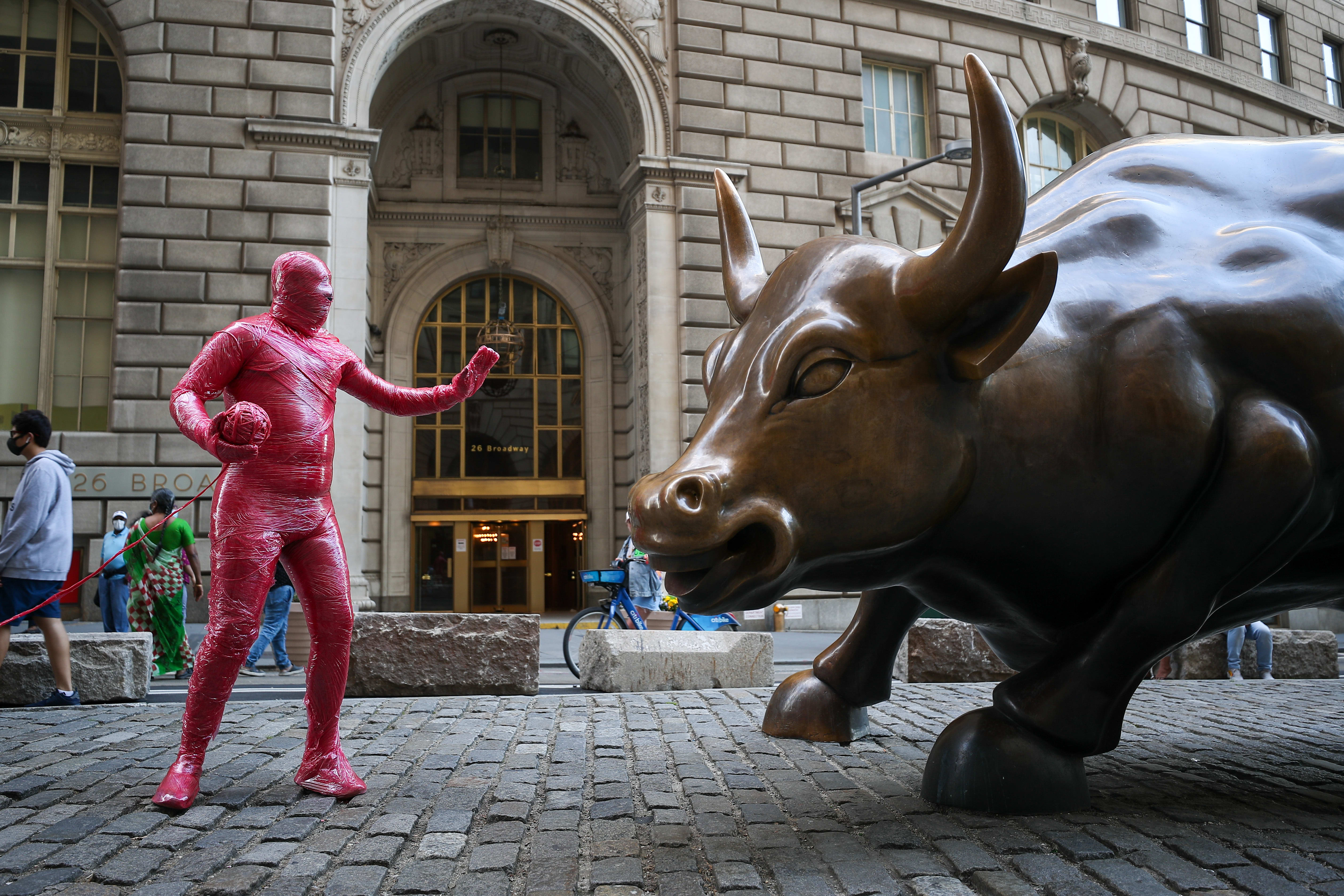
U.S. stocks were little changed on Friday as a decline in Intel pressured the broader tech sector. Investors also weighed the potential for additional fiscal stimulus as well as news on the coronavirus treatment front.
The Dow Jones Industrial Average slipped 10 points, or less than 0.1%. The Nasdaq Composite pulled back by 0.4%. The S&P 500 hovered just above the flatline.
Intel shares fell 10.9% following the release of mixed quarterly numbers for the chipmaker. The company’s earnings were in line with analyst expectations, but revenue from its data center business fell short of analyst estimates.
Gilead Sciences gained 3.3% after the Food and Drug Administration approved the company’s drug, remdesivir, for use as a treatment against the coronavirus.
Stocks were coming off a solid session, as the major averages rose broadly on Thursday after House Speaker Nancy Pelosi signaled she and Treasury Secretary Steven Mnuchin were making progress in their fiscal stimulus negotiations.
“If we were not making progress, I wouldn’t spend five seconds in these conversations. … This is not anything other than I think a serious attempt. I do believe that both sides want to reach an agreement,” Pelosi said.
However, Pelosi also tempered expectations over Democrats and Republicans reaching a deal before the election, saying it could take “a while” for a bill to be written and signed.
Traders have been keeping an eye on Washington in recent weeks as they gauge the prospects for new coronavirus aid to be pushed through. Several market experts and economists, including Federal Reserve Chairman Jerome Powell, think it is imperative that lawmakers reach a deal on another stimulus package.
“Governmental powers are still trying to put together another economic relief package,” said Jim Paulsen, chief investment strategist at The Leuthold Group. “However, despite the July expiration of unemployment benefits provided by the CARES Act, here, two-and-a-half months later, U.S. economic momentum is remarkably healthy.”
Friday’s slight move also came after President Donald Trump and former Vice President Joe Biden took part in the final presidential debate before the Nov. 3 election.
The pair discussed a broad range of issues during the debate, including the coronavirus pandemic, foreign policy and health care. Futures, however, remained little changed throughout the debate.
Biden held a lead in most national polls heading into the debate as the possibility for a so-called Blue Wave grows. Some investors think a Democratic sweep could lead to a pop in equity prices in the short term. However, legendary hedge fund manager Paul Tudor Jones warned Thursday that this scenario could pressure stocks in the long term.
“I think under a blue wave, and the Biden tax plan, financial assets over the long run suffer a great deal,” he said on CNBC’s “Squawk Box.”
— CNBC’s Yun Li contributed reporting.
Subscribe to CNBC PRO for exclusive insights and analysis, and live business day programming from around the world.

